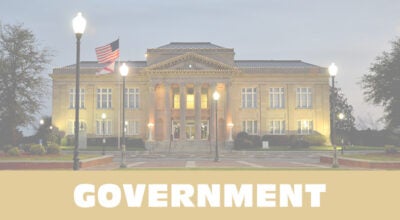Study: Fewer claim religion
Published 11:42 pm Monday, March 9, 2009
A recent national survey suggests that a larger percent of Americans are rejecting traditional organized religion, a trend that concerns some local ministers.
The report, organized by the Program on Public Values at Trinity College in Hartford, Conn., surveyed more than 54,000 adults in 2008. The survey found that 15 percent of respondents said they had no religion, compared to 8.2 percent in 1990. According to the same survey, Christians make up 76 percent of the U.S. adult population, compared to 86 percent in 1990.
“Anytime you see a survey like this that shows a decline in the faith, it’s alarming to see,” said Dr. Fred Karthaus, pastor of First Baptist Church in Andalusia.
The survey showed an across-the-board decrease in all major Christian denominations. Roman Catholicism is claimed by 25.1 percent of the population (was 26.2 percent in 1990); Baptists made up 15.8 percent (was 19.3 percent in 1990); and mainline Protestant denominations — Methodist, Lutheran, Presbyterian, Episcopalian and United Church of Christ — dropped from 18.7 percent in 1990 to 12.9 percent in 2008.
The study also found that religion is becoming less common in the roles of many lives — 30 percent of surveyed couples said they did not have a religious wedding ceremony and 27 percent of respondents said they do not want to have a religious funeral service.
One group that did increase in relevance was “non-denominational” Christianity, which claimed just 0.1 percent of the population in 1990 and increased to more than 3.5 percent in 2008. Many of those who claimed this identity belong to “mega churches” that are known for using rock-style music and less structured services.
The Rev. M. Sidney McCollum, interim pastor at First Presbyterian Church in Andalusia, admitted that his church is probably more traditional than most denominations.
“I would say this church, right now, is in the middle of reflecting on what its values are,” he said. “If you look at the building, look at our congregation, you’ll find it’s a very traditional group of people. And yet, I think they realize that we’re going to have to adapt that traditionalism, and make it relate to people who are not attending church now.”
Karthaus said FBC utilizes modern conveniences to make its message more accessible to the younger and more techno-savvy generations, but is not willing to compromise the message itself.
“It’s always been an issue in the church, of how to relate it to a new generation,” he said. “We want to make sure we can share the message of the Gospel in ways that connect with the current generation. But at the same time, we won’t change the message itself, we just might change the method in which we present that message.
“The message will remain that same, and that is that we all need Christ to have a life that is fulfilling.”





